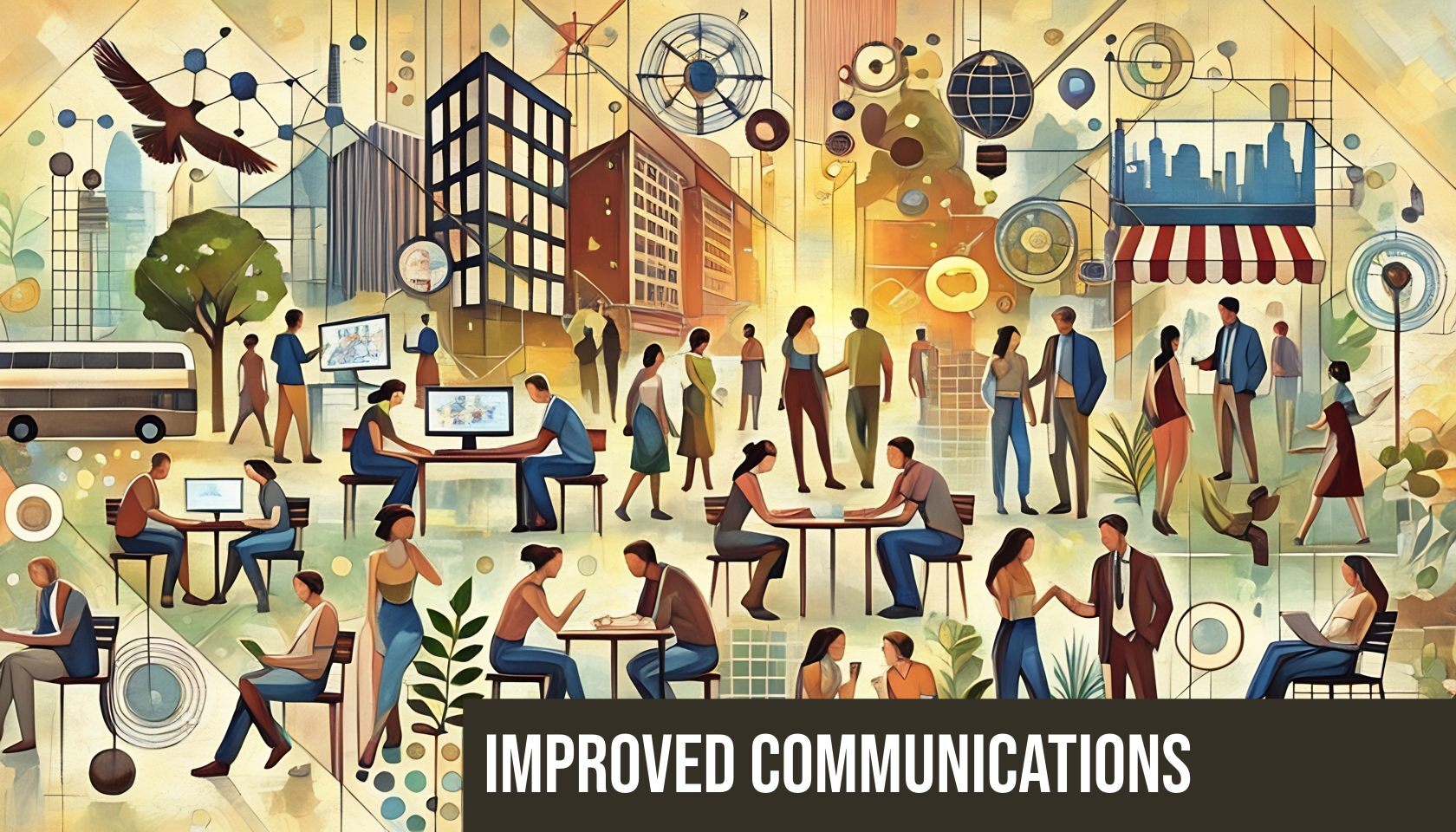The Importance of Communication in Our Lives
Let me take you through this: Communication isn’t just something we do; it’s the heartbeat of our daily lives. Think about it—every conversation, every interaction, shapes who we are, how we feel, and how we connect with the world around us. It’s not just about talking; it’s about the relationships we build, the impressions we leave, and the way we see ourselves through others’ eyes. Often, we don’t realize how deeply our words and gestures impact those around us, but every exchange leaves its mark, whether at home, at work, or even in fleeting moments with strangers.
Sure, we all know there are basic rules to follow—polite greetings, active listening, saying the right thing at the right time. But there’s something much deeper at play. The real magic happens when we tap into the psychology of communication, that subtle, often unspoken layer that goes beyond words. It’s where true connection lives, and it’s what transforms ordinary conversations into powerful exchanges that can make or break relationships, both personal and professional.
Sure, we all know there are basic rules to follow—polite greetings, active listening, saying the right thing at the right time. But there’s something much deeper at play. The real magic happens when we tap into the psychology of communication, that subtle, often unspoken layer that goes beyond words. It’s where true connection lives, and it’s what transforms ordinary conversations into powerful exchanges that can make or break relationships, both personal and professional.
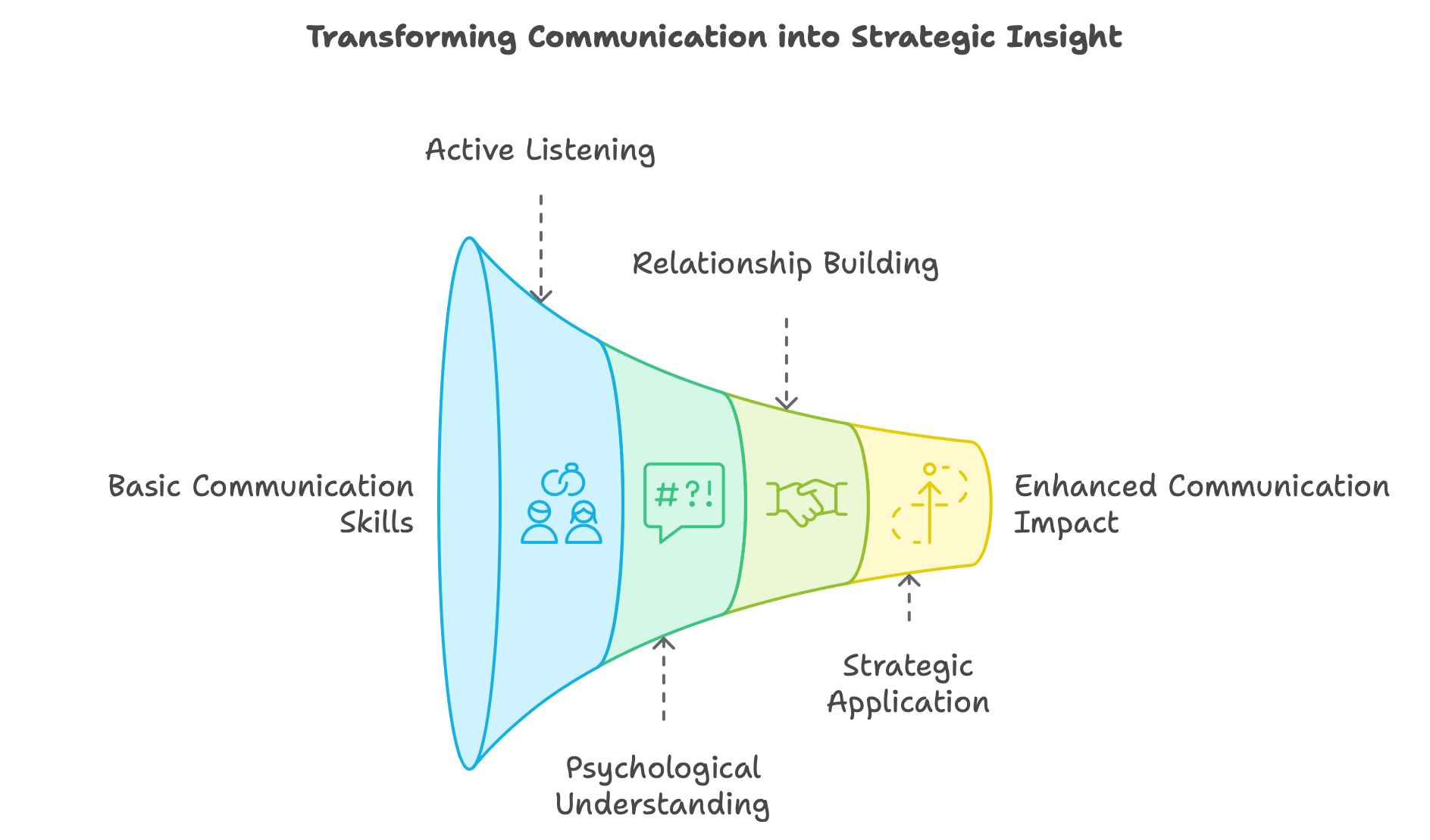
In my work, I’ve seen how this plays out, especially in high-stakes environments like Talent Acquisition Solutions or People Strategy Consulting. Here, communication isn’t just a skill; it’s a strategic tool. It’s the secret sauce that helps you understand the unspoken needs of a candidate or align a team’s vision during a critical organizational change. Those who master this nuanced form of communication stand out—they’re the ones who can read between the lines, sense the unsaid, and respond with the kind of empathy and insight that turns conversations into opportunities.
The Art of Communication: Nature vs. Nurture
This art of communication is part nature, part nurture. Some of us are born with the gift of gab, while others might be more reserved. But here’s the truth: great communicators aren’t just born—they’re made. With the right mindset and practice, anyone can learn to navigate the complex landscape of human interaction. Whether it’s refining the way we express our ideas or honing our listening skills, these are not just innate traits but skills that reflect our emotional intelligence, our sensitivity, and our understanding of others. And it’s these skills that make all the difference when the stakes are high, whether you’re leading an executive search, devising a custom recruitment strategy, or simply trying to connect on a deeper level.
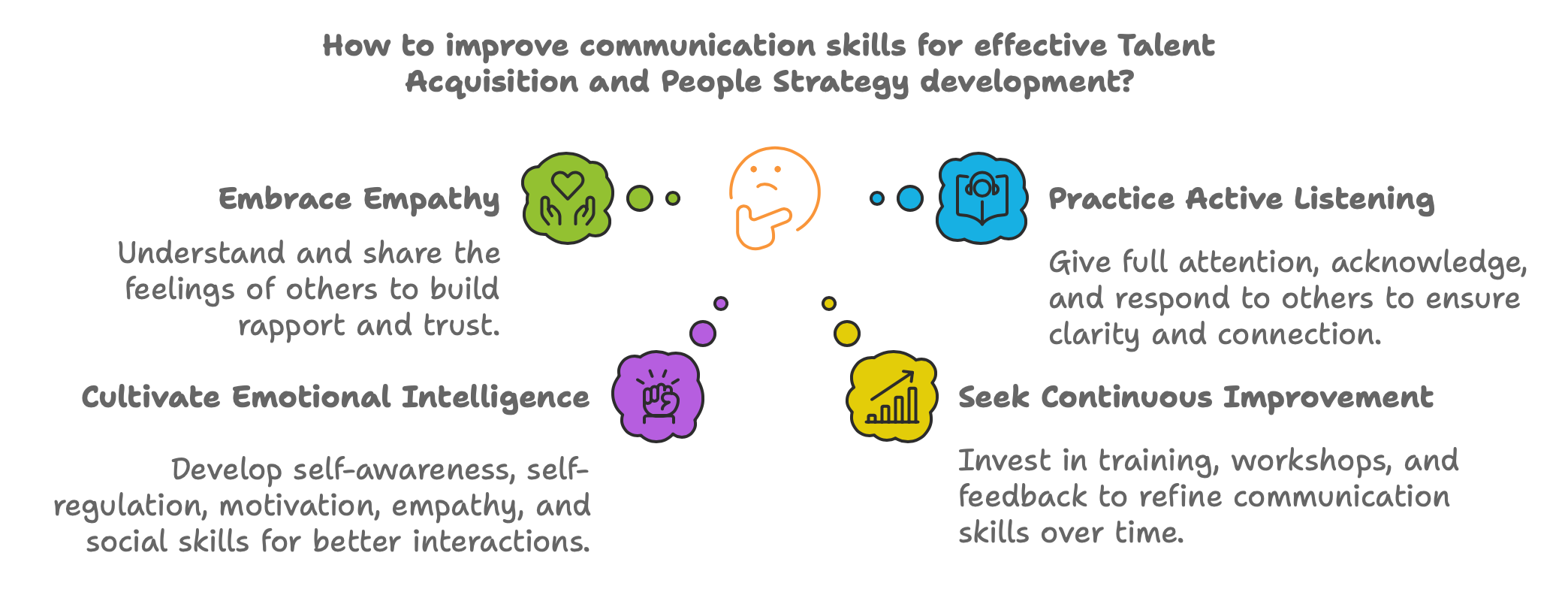
A truly engaging conversation is one where both parties feel heard, understood, and connected. These interactions don’t happen by accident; they are built on empathy, active listening, and a willingness to be present. When communication is intentional and well-executed, it elevates not just the individuals involved but also contributes to broader goals such as Talent Acquisition and People Strategy development.
Digital Communication and Its Challenges
In today’s world, a significant portion of our communication happens through digital platforms, including messages, emails, audio, and video. While these methods offer speed and convenience, they often lack the emotional depth and nuance of face-to-face interactions. This disconnect can sometimes lead to misunderstandings, particularly in professional settings where clarity and precision are essential, such as during HR Consulting Services.
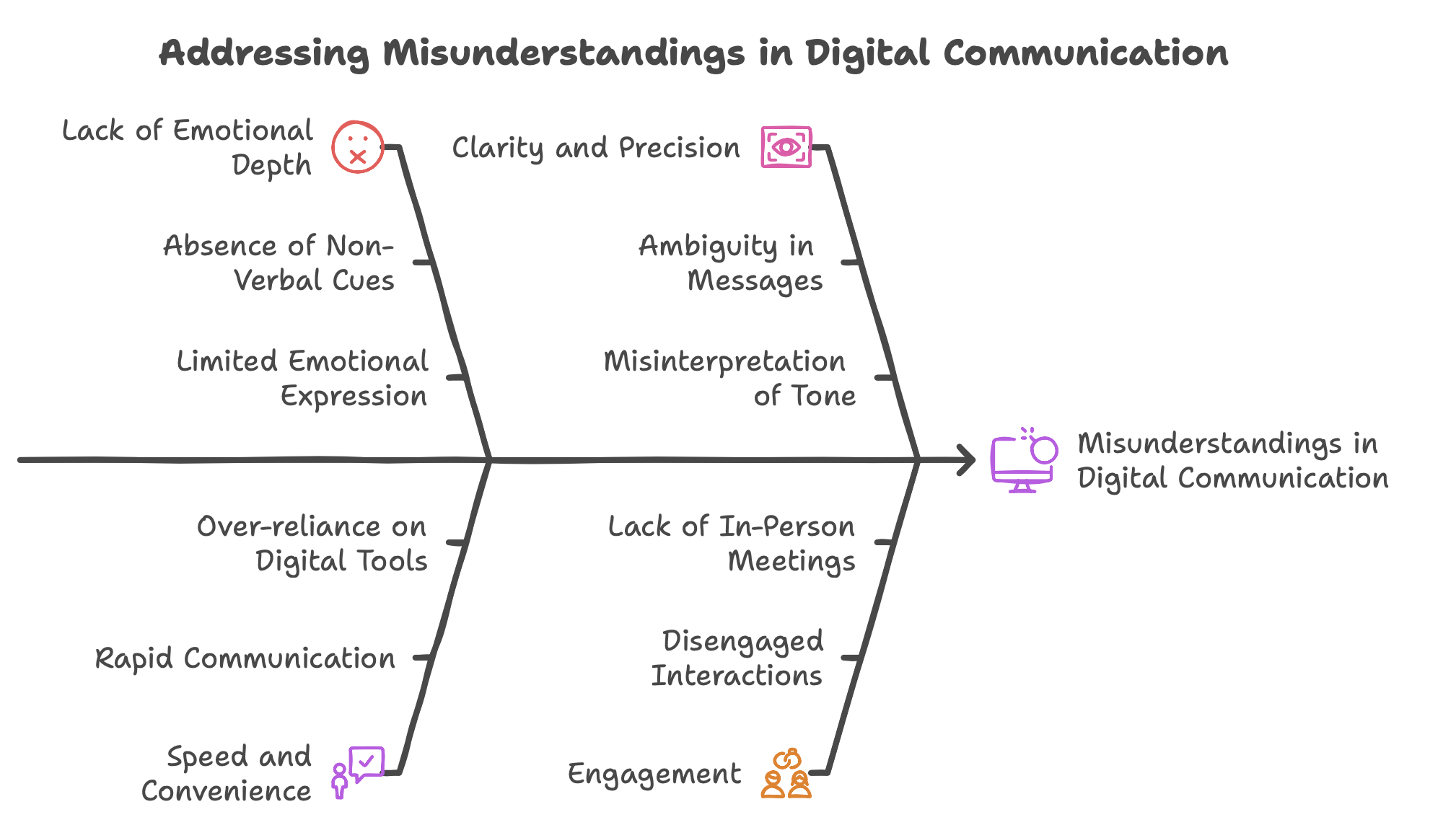
To counterbalance this, it's important to maintain a healthy mix of digital and in-person interactions, ensuring that we remain truly engaged with the people around us. Communication should be viewed not merely as a task but as a dynamic process that enriches our lives and builds stronger, more resilient teams and organizations.
Perception and Misinterpretation in Communication
A key concept to grasp is that when we communicate, we are often interacting with our perception of the other person rather than the person themselves. Our brains create mental images of others based on our experiences, biases, and interpretations of their actions and words. This mental image, shaped by neural connections in our prefrontal cortex, means that our communication is always filtered through our own internal perceptions.
This explains why misunderstandings occur so frequently in both personal interactions and professional settings, such as in Talent Acquisition. We interpret others’ words and actions based on our assumptions, past experiences, and emotional states, rather than seeing them as they truly are. Similarly, others perceive us not as we are, but through the lens of their own biases and expectations.
This explains why misunderstandings occur so frequently in both personal interactions and professional settings, such as in Talent Acquisition. We interpret others’ words and actions based on our assumptions, past experiences, and emotional states, rather than seeing them as they truly are. Similarly, others perceive us not as we are, but through the lens of their own biases and expectations.
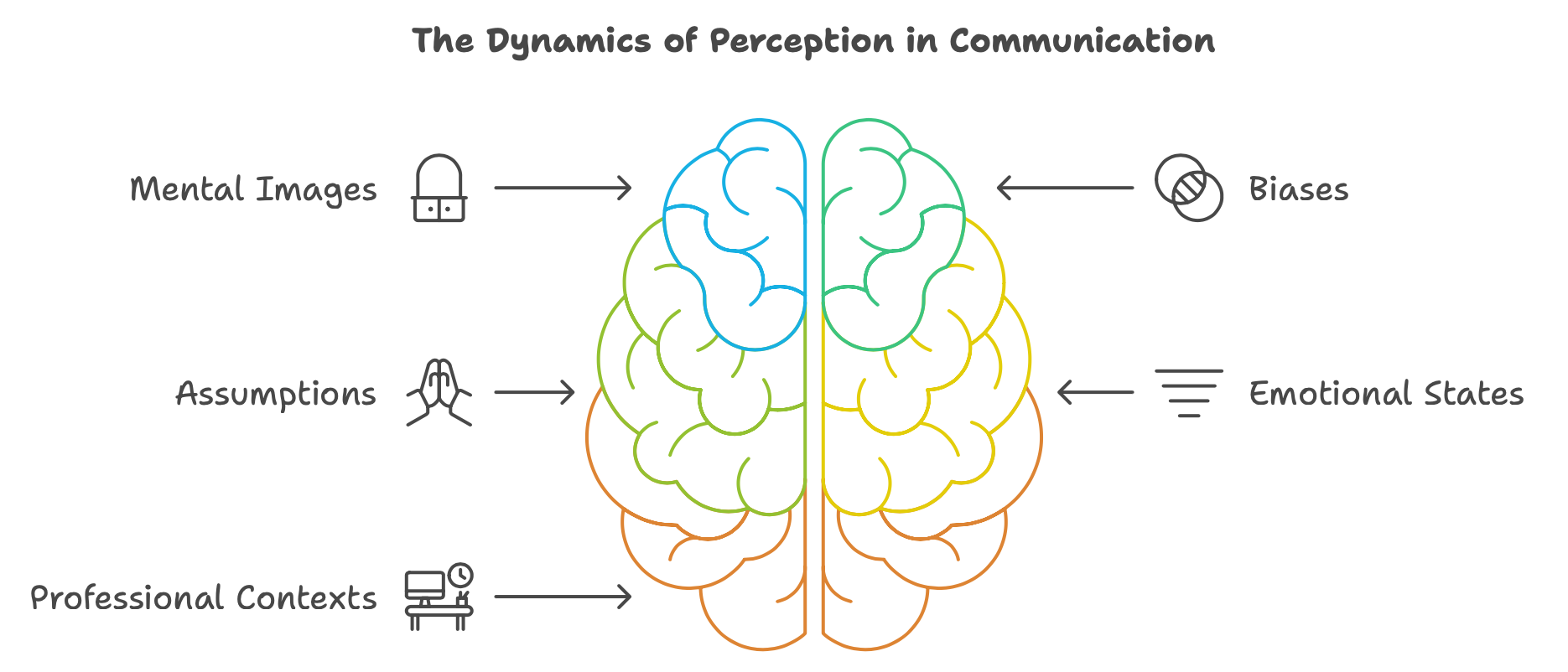
Changing someone's perception of you, especially in a professional context, is not a quick fix; it requires consistent, genuine effort to shift the image they hold of you in their mind. This is especially crucial in roles such as Talent Acquisition or when engaging in HR related activities, where perception can significantly impact outcomes.
Exercises to Improve Communication
Improving communication is an ongoing process that requires conscious effort. Here are some exercises to help you become more mindful of your interactions:

1. Imagine It’s Your First Conversation: When speaking with someone you know well, pretend it’s your first interaction. This approach helps you engage more actively and authentically, which can be particularly useful in professional settings where building rapport quickly is essential.
2. Consider What You’re Conveying: Think about the key messages and values you want to communicate, especially when discussing strategies related HR activities. This helps make your interactions more purposeful and impactful.
3. Reflect on Your Daily Interactions: Reflect on your communications at the end of each day. Was there anything new or surprising? Did you interact with others on autopilot, simply playing familiar roles? This reflection can identify areas where you can introduce more authenticity and depth into your conversations.
4. Challenge Perceptions: Recognize that your perception of someone may not be the complete picture. Be open to adjusting your understanding based on new information and feedback, which is vital in roles where stakeholder alignment is key.
Creating Meaningful Interactions
Meaningful communication begins when we break free from habitual, surface-level interactions. It’s about creating an environment where all parties feel safe to express themselves fully and honestly. This is crucial not just in personal relationships but also in professional engagements, where the quality of communication can directly impact the success of the outcomes.
Thoughts
Communication is a skill deeply intertwined with emotional intelligence and self-awareness. It’s easy to fall into routine patterns, but actively working on enhancing your communication skills opens up a world of deeper, more fulfilling connections—both personally and professionally. In the context of business, mastering communication is not just an advantage; it’s essential for success in areas like Talent Acquisition and People Strategy Consulting. Being present, empathetic, and genuinely curious about others can transform your communication into a powerful tool for growth. Embrace the journey of becoming a master communicator; it’s one of the most rewarding skills you can develop, unlocking new levels of personal and professional achievement.
I recommend you to read related articles:
The Real Reasons Projects Stall - and How Better HR, Planning, and Communication Can Fix Them
Aligning Leadership Actions with Team Needs for Greater Impact
What Makes Managers Invaluable Assets in Organizations?
The Art of Engaging Communication: Building Trust, Inspiring Curiosity, Lasting Impression
Empowering Busy Leaders to Share the Right Information at the Right Time
I recommend you to read related articles:
The Real Reasons Projects Stall - and How Better HR, Planning, and Communication Can Fix Them
Aligning Leadership Actions with Team Needs for Greater Impact
What Makes Managers Invaluable Assets in Organizations?
The Art of Engaging Communication: Building Trust, Inspiring Curiosity, Lasting Impression
Empowering Busy Leaders to Share the Right Information at the Right Time
How UnitiQ Supports Effective Communication in Talent Acquisition
UnitiQ’s Fractional HR Services emphasize the importance of clear and effective communication throughout the hiring process. By helping organizations improve both verbal and nonverbal communication, UnitiQ ensures that teams can connect meaningfully with potential candidates. From refining job descriptions to providing guidance on digital and in-person interactions, UnitiQ aids in minimizing misunderstandings and optimizing talent acquisition strategies. Effective communication, a core element in people strategy, enhances hiring outcomes and strengthens organizational culture.
I’m excited to help you attract the right talent and develop a people strategy tailored to your team’s unique needs. Feel free to ask any questions, and don't hesitate to book a call!
Direct contacts of Olga Fedoseeva, Founder and CEO of UnitiQ Fractional HR Solutions:
My Telegram
My LinkedIn
I’m excited to help you attract the right talent and develop a people strategy tailored to your team’s unique needs. Feel free to ask any questions, and don't hesitate to book a call!
Direct contacts of Olga Fedoseeva, Founder and CEO of UnitiQ Fractional HR Solutions:
My Telegram
My LinkedIn
